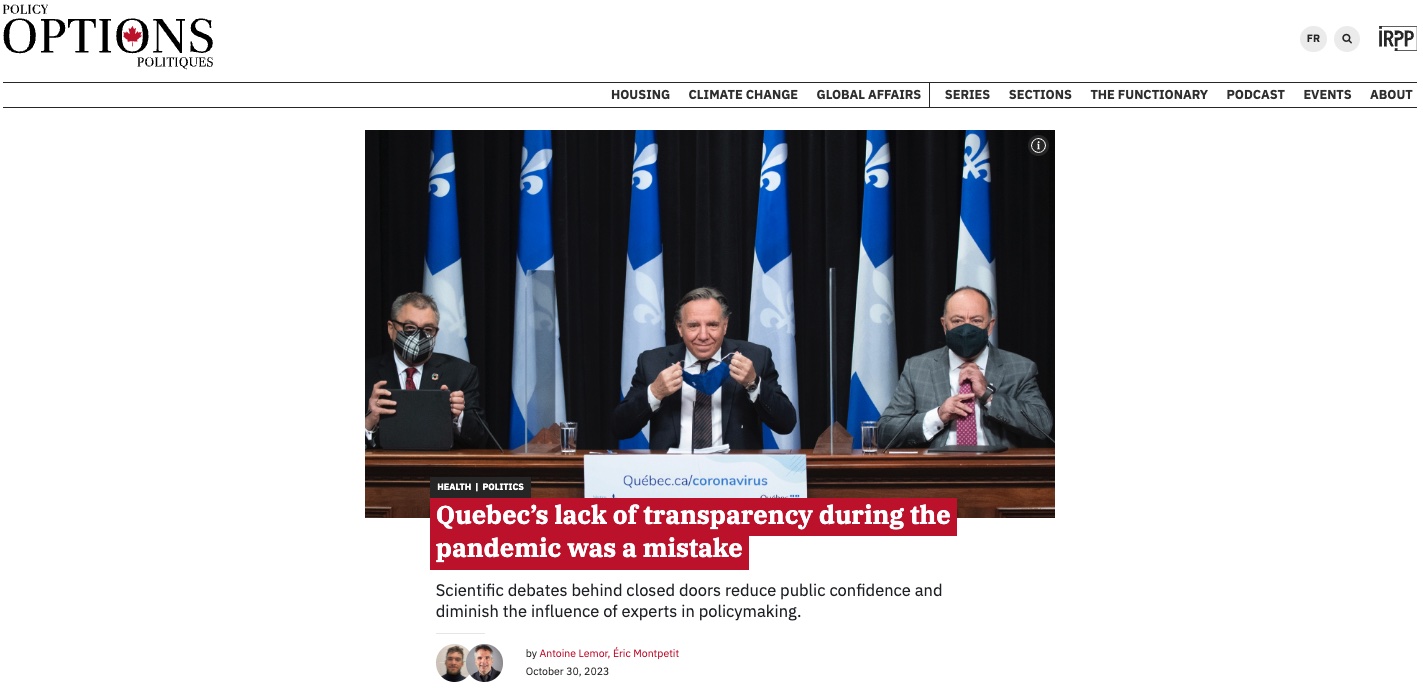Quebec’s lack of transparency during the pandemic was a mistake,
Introduction

Section 1
In our article we examine how decisions were influenced not just by scientific data, but also by public opinion and the emotional responses of decision-makers. We emphasize the intricate balance between rational policy formulation and the human element in governance, especially in times of crisis and uncertainty. The research provides valuable insights into policy-making complexities in unprecedented scenarios, underscoring the need for an approach that integrates both empirical evidence and human factors.
In Quebec’s lack of transparency during the pandemic was a mistake, we examine Quebec’s public health communication strategy during COVID-19, critiquing its approach for lacking transparency. Contrasting with the open approaches of Belgium, Sweden, and Switzerland, Quebec’s political control over scientific information led to diminished public debates and expert visibility. This tight control was a result of the structural organization of Quebec’s health system, where key institutions like the INSPQ were subordinate to political bodies, leading to a blurred line between scientific advice and political decision-making.
The article underscores the consequences of this approach, highlighting public mistrust, desensitization to fear management, and eventual public defiance of health measures, even in the face of hospital challenges. We emphasize that scientific knowledge thrives on open debate and contradiction, and hiding these debates undermines public trust and expert influence in policy-making. The lack of transparency not only reduced expert authority in the public eye but also influenced policy formulation negatively.
The necessity for transparent communication and a clear distinction between scientific advice and political decision-making is crucial for building public trust and ensuring effective policy implementation. This approach is essential not just in managing health crises but also in other areas of public policy where scientific input is critical.
Enjoy Reading This Article?
Here are some more articles you might like to read next: